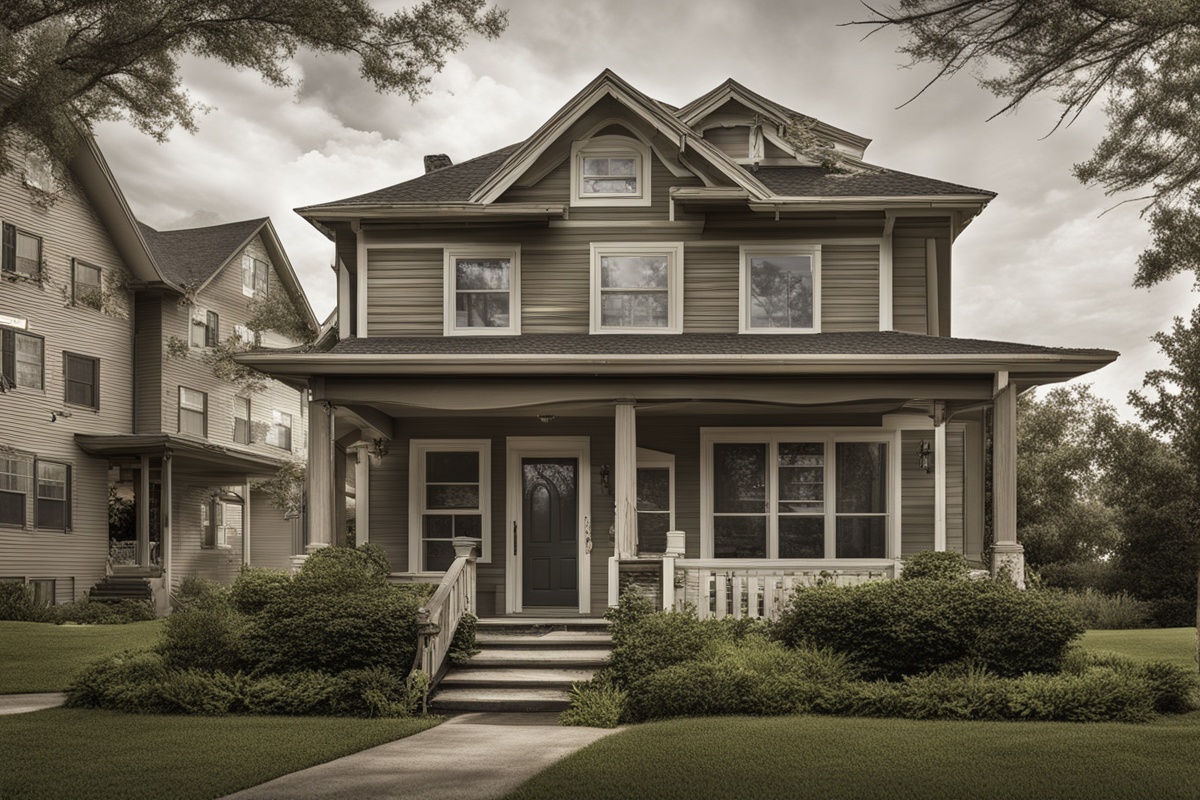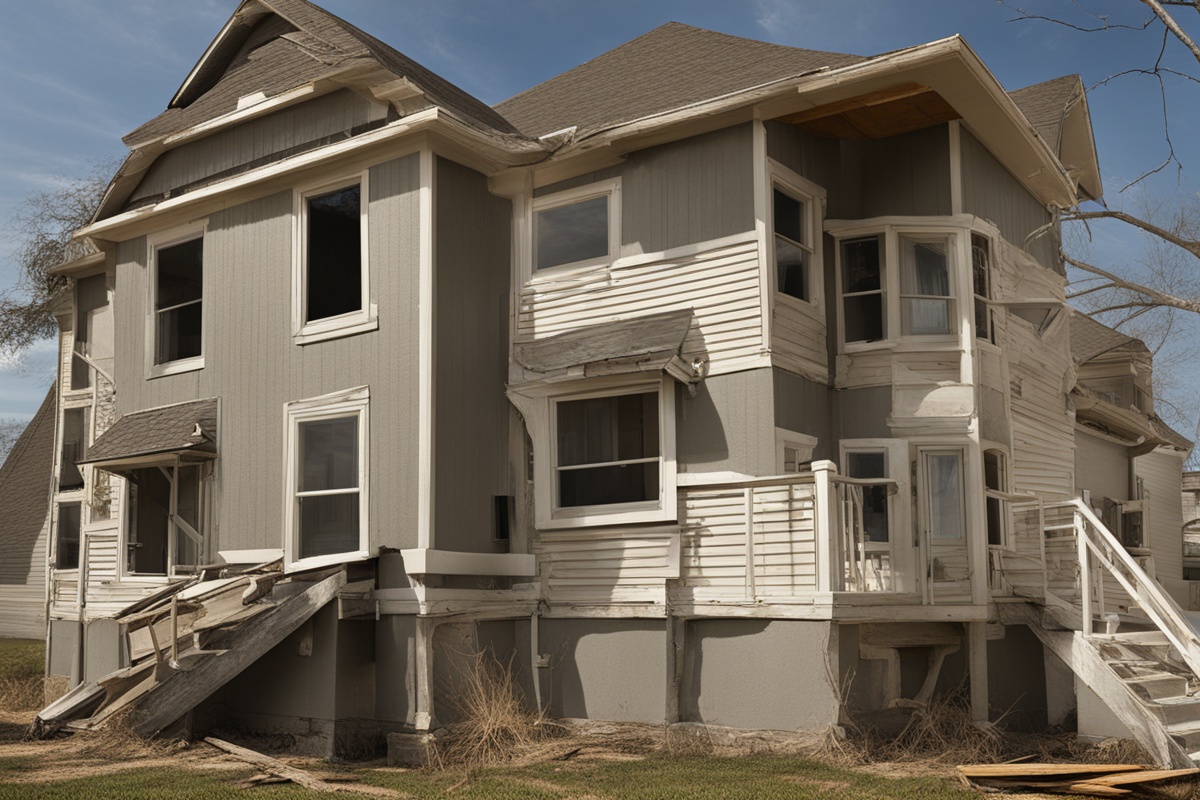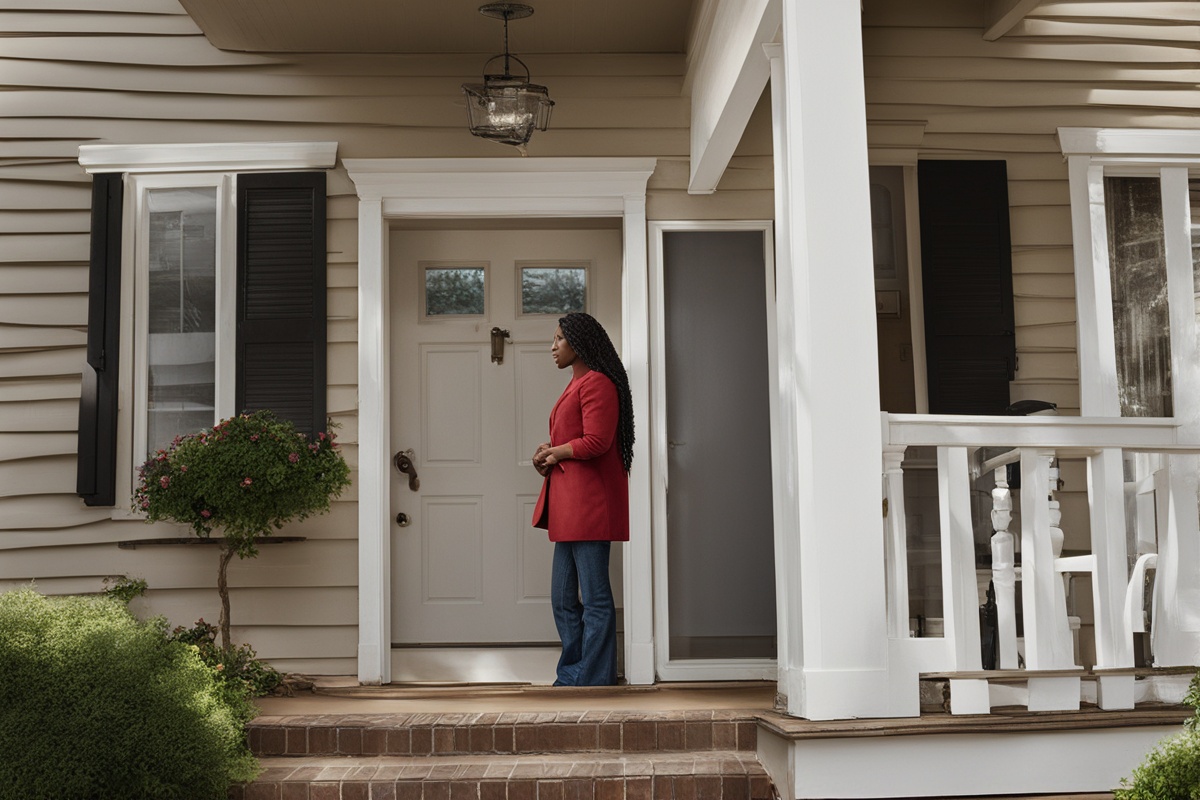Property loss is a gut-wrenching experience that can strike anyone, anywhere, at any time. Whether it’s due to a natural disaster, theft, or an unexpected accident, the emotional and financial toll can be devastating. In this deep dive into the heartbreaking tales of property loss, we’ll explore real stories, uncover the raw emotions tied to losing a home or cherished belongings, and offer practical advice on how to cope and rebuild. If you’ve ever faced such a loss—or fear you might someday—this post is for you.
Disclaimer: This article is for informational purposes only, based on general research and personal experiences shared by homeowners. It’s not a substitute for professional medical advice, diagnosis, or treatment. If you’re struggling with emotional distress or mental health challenges following a property loss, always consult a qualified healthcare provider for personalized guidance. Additionally, for legal or financial advice related to property loss, seeking out a licensed professional is highly recommended. We aim to provide support and insights, but every situation is unique, and professional input is often essential.
The Emotional Weight of Property Loss
Imagine coming home after a long day, only to find your house reduced to rubble by a wildfire. Or picture opening your front door to discover that burglars have stripped away not just your valuables, but also your sense of safety. These aren’t just hypotheticals—they’re the heartbreaking tales of property loss that countless homeowners have lived through. The emotional impact often hits harder than the financial one. A house isn’t just a structure; it’s a repository of memories, a safe haven, a place where life unfolds. Losing it can feel like losing a piece of yourself.
I’ve spoken with many who’ve endured this pain, and one story sticks with me. A friend of mine, Sarah, lost her family home in a flood a few years back. She described the moment she saw the muddy waterline creeping up the walls of her childhood bedroom. “It wasn’t just the stuff,” she told me, her voice cracking. “It was the birthday cards I’d saved, the little marks on the wall where Dad measured my height. Those are gone forever.” Her words hit me hard. How do you even begin to process that kind of loss?
Common Causes of Property Loss: From Nature to Negligence
Property loss comes in many forms, and understanding the causes can sometimes help us prepare—or at least brace ourselves. Natural disasters like hurricanes, earthquakes, and floods are often the culprits. According to the National Oceanic and Atmospheric Administration (NOAA), the U.S. alone saw over $165 billion in damages from weather-related disasters in 2022. That’s not just a number; it’s thousands of families left picking up the pieces.
Then there’s theft and vandalism. A neighbor of mine once had his garage broken into, losing tools he’d spent years collecting. He wasn’t just angry—he felt violated. “It’s like someone walked into my life and took a chunk of it,” he said. And let’s not forget accidents: a house fire caused by a forgotten candle or a burst pipe that floods an entire basement. These incidents remind us how fragile our grip on “home” can be.
Curious about protecting your home from such risks? Check out our detailed guide on essential home safety tips to minimize potential hazards.
The Financial Fallout: More Than Just Dollars and Cents
Let’s talk money—because property loss isn’t just an emotional blow; it’s often a financial sucker punch. Rebuilding a home after a disaster can cost tens or even hundreds of thousands of dollars, and that’s assuming insurance covers it. Many homeowners, sadly, find out too late that their policies don’t include flood or earthquake damage. Have you checked yours lately? If not, now might be the time.
Beyond the big-ticket repairs, there are the smaller, insidious costs. Replacing stolen electronics, furniture, or even sentimental items that can’t truly be replaced—it all adds up. And then there’s the hidden cost of time: dealing with insurance claims, finding temporary housing, or taking days off work to manage the chaos. For a deeper look into navigating insurance after a loss, take a peek at our post on handling insurance claims post-disaster.
Coping with the Emotional Aftermath
Here’s where things get heavy. The emotional scars of property loss can linger long after the physical damage is repaired. Studies, like those from the American Psychological Association, show that losing a home can trigger grief akin to losing a loved one. It’s not uncommon to feel anxiety, depression, or even PTSD-like symptoms after such an event. I’ve seen this firsthand with a relative who couldn’t sleep for months after a burglary, jumping at every creak in the house.
So, what can you do? First, don’t bottle it up. Talk to someone—whether it’s a friend, family member, or therapist. There’s no shame in admitting you’re struggling. Second, try to focus on small wins. Maybe it’s salvaging a photo album from the wreckage or setting up a cozy corner in temporary housing. These little steps can rebuild your sense of control. And if you’re looking for more ways to heal emotionally after a loss, our article on emotional recovery strategies offers actionable tips.
Rebuilding and Moving Forward: Practical Steps
Rebuilding after property loss isn’t just about bricks and mortar; it’s about reclaiming your life. Start by assessing the damage—both physical and emotional. Take photos, document everything, and file insurance claims as soon as possible. If you’re overwhelmed, consider hiring a public adjuster to advocate for you. A colleague of mine did this after a house fire, and she swore it saved her sanity.
Next, prioritize safety. If your home is uninhabitable, find temporary shelter through local resources or organizations like the Red Cross. Then, create a rebuilding plan. Break it into manageable chunks: secure funding, hire contractors, replace essentials. And don’t rush the emotional recovery—give yourself grace. One tip I’ve heard from disaster recovery experts is to involve your family in the process. Let kids pick out new paint colors or help plant a garden in the new yard. It can turn a painful experience into a bonding one.
Lastly, protect yourself from future loss. Invest in better security systems, update your insurance policy, and create a disaster preparedness kit. It won’t erase the past, but it can give you peace of mind moving forward.
Community Support: You’re Not Alone
Here’s a silver lining: you don’t have to face property loss alone. Communities often rally around those in need, whether through local fundraisers, church groups, or government assistance programs. After a tornado tore through a nearby town last year, I watched neighbors come together to clear debris, cook meals, and even offer spare rooms. It was a reminder that humanity shines brightest in dark times.
If you’re struggling, reach out. Look for local disaster relief organizations or online forums where survivors share their stories and tips. Sometimes, just hearing someone say, “I’ve been there, and I got through it,” can make all the difference. And don’t underestimate the power of professional help—therapists and counselors trained in trauma can offer tools to cope with the heartbreak.
Lessons Learned from Heartbreaking Tales
Every heartbreaking tale of property loss carries a lesson. For Sarah, it was the importance of digitizing precious memories—scanning old photos and storing them in the cloud. For my neighbor, it was investing in a robust security system after his garage break-in. For me, watching these stories unfold has taught me to never take “home” for granted. Have you backed up your important documents? Do you have an emergency fund? These aren’t just questions—they’re calls to action.
Property loss is a brutal reminder of life’s unpredictability, but it also teaches resilience. As Dr. Judith Herman, a renowned trauma expert, notes in her book Trauma and Recovery, healing comes from rebuilding connections—with people, with places, and with ourselves. So, if you’re in the thick of loss right now, hold on. There’s a way forward, even if it doesn’t feel like it today.
References
- National Oceanic and Atmospheric Administration (NOAA) – Billion-Dollar Weather and Climate Disasters 2022
- American Psychological Association (APA) – Mental Health Impacts of Disasters
- American Red Cross – Disaster Relief and Recovery Services
This content is for informational purposes only and not a substitute for professional advice.





